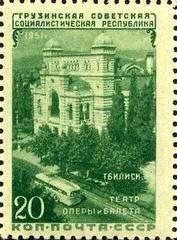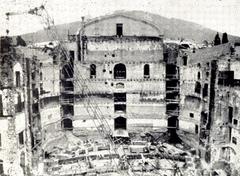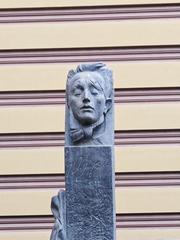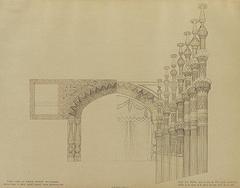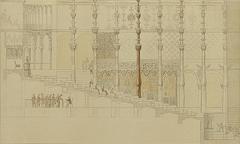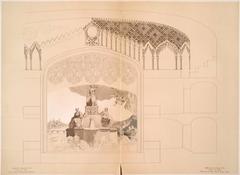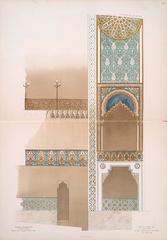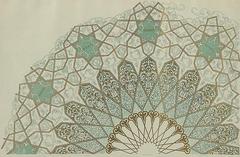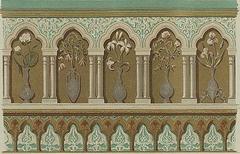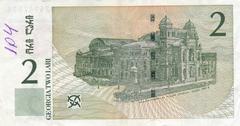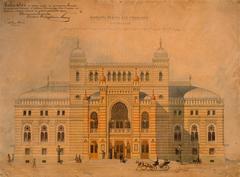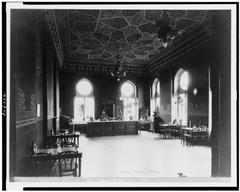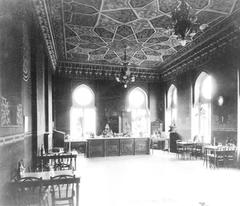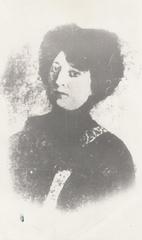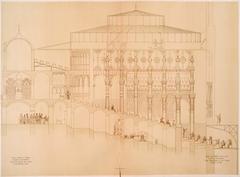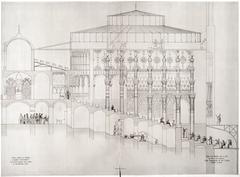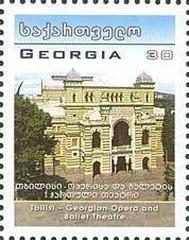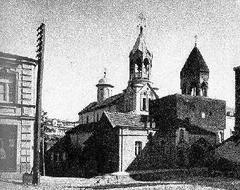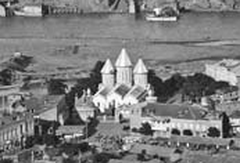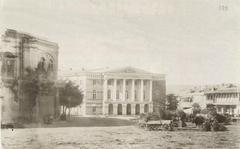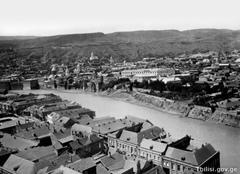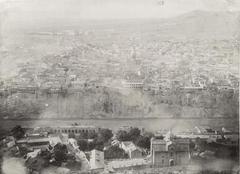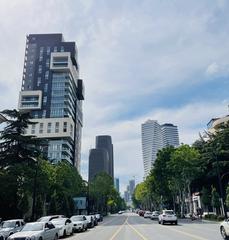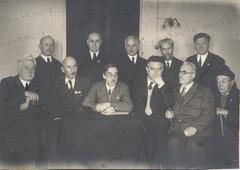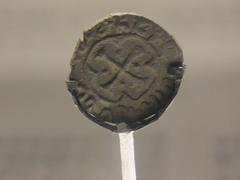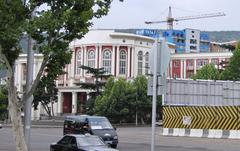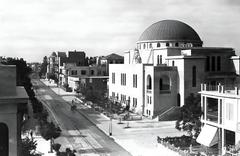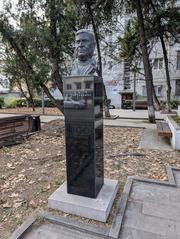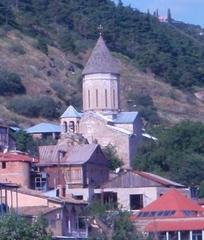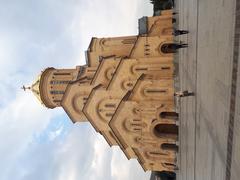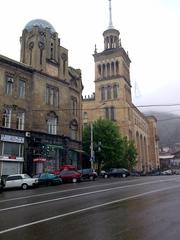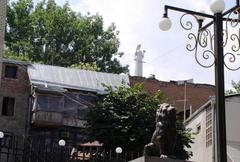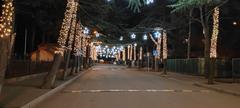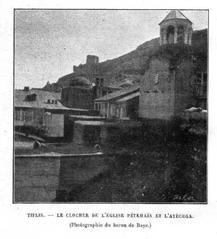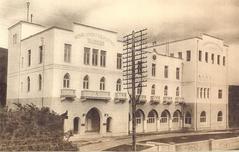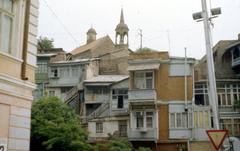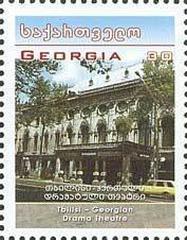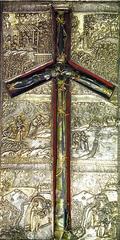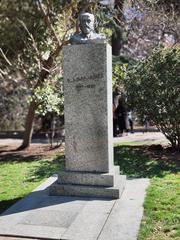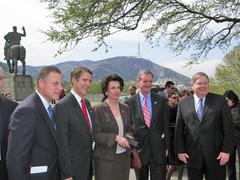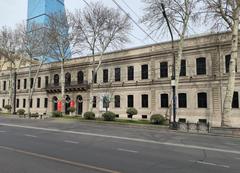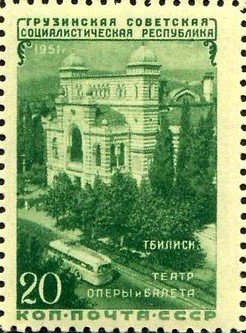
Tbilisi Opera and Ballet Theatre: Visiting Hours, Tickets, and Historical Significance
Date: 14/06/2025
Introduction
Situated in the heart of Georgia’s capital, the Tbilisi Opera and Ballet Theatre—officially the Zakaria Paliashvili Tbilisi State Opera and Ballet Theatre—stands as a symbol of Georgian cultural heritage and architectural splendor. Renowned for its Moorish Revival style, the theatre is a central pillar in the preservation and promotion of Georgian performing arts, making it a must-visit for culture enthusiasts, history buffs, and travelers alike.
This comprehensive guide provides essential information on the theatre’s history, architectural highlights, visiting hours, ticketing, accessibility, and nearby attractions to help you plan a memorable visit. Whether you’re drawn by lavish interiors, world-class performances, or the theatre’s storied past, this resource ensures an enriching experience.
Table of Contents
- Introduction
- Historical Overview
- Visiting Hours and Ticket Information
- Accessibility and Visitor Amenities
- Architectural Highlights
- Performance Experience
- Special Events and Guided Tours
- Location and Nearby Attractions
- Cultural Significance
- Visitor Tips and Practical Information
- Frequently Asked Questions (FAQ)
- Plan Your Visit
- Conclusion
- References and External Resources
Historical Overview
The Tbilisi Opera and Ballet Theatre traces its origins to 1851, when the original Tiflis Imperial Theater opened as a marker of cultural modernization during the Russian Empire era. After the original building was lost to a fire in 1874, the present Moorish Revival structure—designed by Victor Schröter—was completed in 1896 and remains a masterpiece of ornate design (Live the World). Over its history, the theatre has hosted legendary performances and nurtured prominent artists, including the renowned Georgian composer Zakaria Paliashvili.
Major renovations, most recently completed in 2016, have preserved its historic charm while upgrading facilities to meet modern standards.
Visiting Hours and Ticket Information
- Box Office Hours: Daily, 10:00 AM – 6:00 PM
- Performance Times: Typically start at 7:00 PM (evenings) and 2:00 PM (weekend matinees)
- Guided Tours: Available periodically; check the official website for current scheduling
Ticket Prices and Purchase
- Prices: Range from 10 to 80 Georgian Lari, depending on event and seat location
- Where to Buy:
- Official Tbilisi Opera Website
- On-site at the box office
- Advance Booking: Strongly recommended, especially during peak seasons or for popular shows
Seating
The theatre offers a variety of seating options, from orchestra stalls to upper balconies. Detailed seating charts are available online for optimal selection.
Accessibility and Visitor Amenities
- Wheelchair Access: Main entrance and designated seating areas are accessible
- Assistance: Staff are available to help; advance notice is recommended for special accommodations
- Facilities: Cloakroom, café/bar for refreshments, and souvenir shops are available on-site
Architectural Highlights
Exterior
The theatre’s Moorish Revival façade features horseshoe arches, slender columns, and vibrant polychrome brickwork, set off by domes and turrets that evoke Tbilisi’s unique cultural crossroads (Live the World). The building is especially striking when illuminated at night.
Interior
Inside, visitors encounter a grand foyer adorned with intricate plasterwork, gilded moldings, and painted panels inspired by Georgian folklore. The horseshoe-shaped auditorium—seating up to 1,200 guests—is defined by its magnificent chandelier and elaborately painted ceiling. Mirror halls, stained-glass windows, and detailed stucco work create a sense of opulence and artistry.
Unique Elements
The Neo-Moorish design is complemented by muqarnas (stalactite vaulting), Qajar-style mirror work, and arabesque ornamentation. Local Georgian motifs are harmoniously integrated, reflecting national identity.
Performance Experience
Program
The theatre presents a diverse schedule of opera, ballet, and classical concerts, featuring both Georgian and international works. The repertoire includes classics by Verdi, Tchaikovsky, and Puccini, as well as premieres of contemporary Georgian pieces.
Atmosphere and Acoustics
Attending a performance offers a sophisticated ambiance with excellent acoustics and a respectful, lively audience comprised of both locals and visitors.
Special Events and Guided Tours
Alongside regular performances, the theatre hosts special events such as the Tbilisi Jazz Festival, Fashion Week, and the International Film Festival (Ivertubani). Guided tours, available in multiple languages, provide in-depth insights into the theatre’s architecture and history. Check with the box office or official website for availability.
Photography: Allowed in public areas and the lobby, but not during performances.
Location and Nearby Attractions
Address: 25 Rustaveli Avenue, Tbilisi, Georgia
Access: Metro (Rustaveli station), buses, and taxis; limited parking available
Nearby Attractions:
- Rustaveli Theatre
- Georgian National Museum
- Mtatsminda Park (via funicular)
- Old Town (Dzveli Tbilisi)
- Erekle II Street
The theatre’s central location makes it easy to integrate your visit with other key Tbilisi sights, shops, and restaurants.
Cultural Significance
The Tbilisi Opera and Ballet Theatre is more than an entertainment venue—it is a cornerstone of Georgian national identity and a hub for cultural diplomacy. It has promoted Georgian composers, choreographers, and performers, while also hosting renowned international artists such as Montserrat Caballé and Mikhail Baryshnikov.
The theatre’s programming actively preserves and showcases Georgian opera, ballet, and folk traditions, with works like Zakaria Paliashvili’s “Abesalom da Eteri” and “Daisi” regarded as national treasures (Georgia4You). Educational outreach and youth programs ensure these traditions endure.
Visitor Tips and Practical Information
- Dress Code: Smart casual recommended; shorts, sportswear, and flip-flops are not permitted
- Arrival: Arrive 20–30 minutes early for ticket collection and to enjoy the lobby
- Language: Most performances are sung in original languages, with surtitles in Georgian or English
- Children: Welcomed, particularly at matinees and special family events
- Safety: The area is safe and well-lit, with visible police presence
Frequently Asked Questions (FAQ)
Q: What are the theatre’s visiting hours?
A: Box office is open 10:00 AM to 6:00 PM daily; performance times usually start at 7:00 PM.
Q: How do I buy tickets?
A: Purchase online via the official website or at the box office.
Q: Are guided tours offered?
A: Yes, periodically; check the official website or box office for details.
Q: Is the theatre wheelchair accessible?
A: Yes, with accessible entrances and seating. Some upper balconies may not be fully accessible due to the historic structure.
Q: What is the dress code?
A: Smart casual; shorts and sportswear are not allowed.
Plan Your Visit
- Check schedules and buy tickets: Official Tbilisi Opera Website
- Explore nearby attractions: Combine your visit with Rustaveli Avenue’s museums, parks, and dining
- Download the Audiala app: For curated audio guides, event updates, and personalized visitor tips
Stay connected with us on social media for the latest news, events, and special offers.
Conclusion
The Tbilisi Opera and Ballet Theatre is a living testament to Georgia’s artistic heritage, resilience, and national pride. Its Moorish Revival architecture, rich programming, and central location make it an indispensable part of Tbilisi’s cultural landscape. Whether you’re attending a performance, joining a guided tour, or simply admiring the façade, this landmark offers a window into the enduring spirit of Georgian culture.
For more information and updates, visit Georgia4You, Live the World, and the official Tbilisi Opera website.
